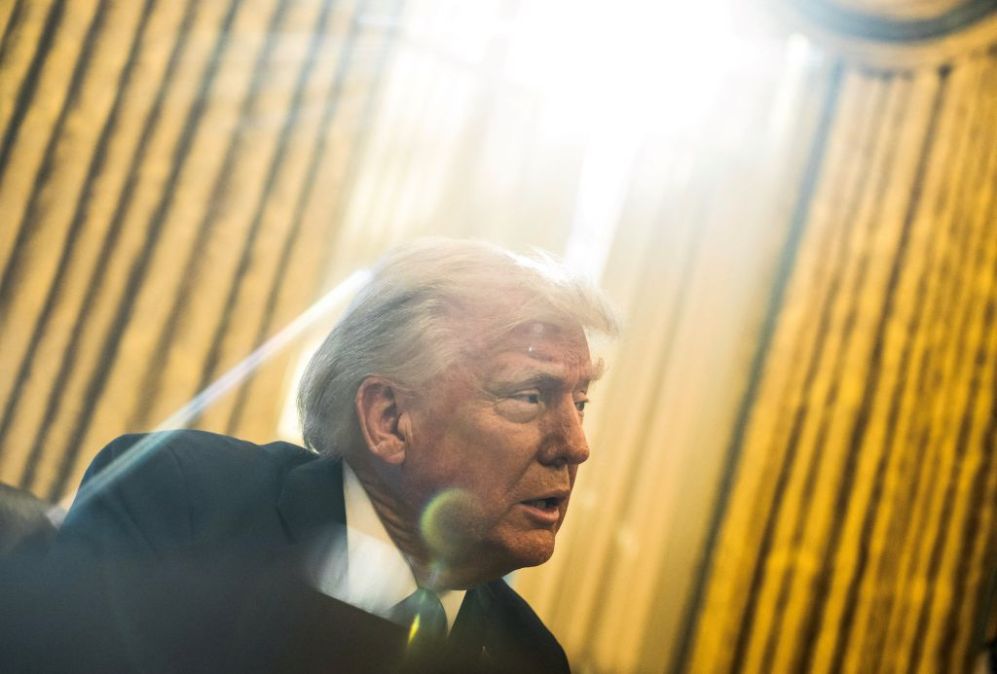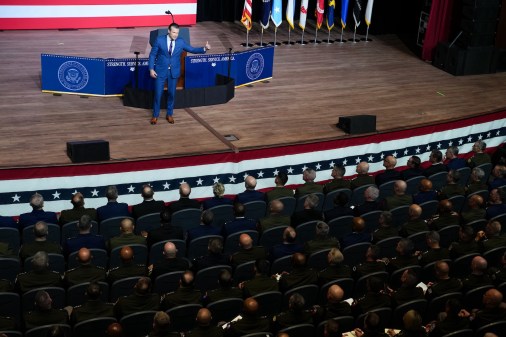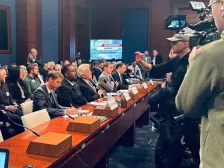UAP enthusiasts ‘hopeful’ for more transparency during Trump’s second term

Sources involved in recent, high-profile campaigns to compel the Pentagon to be more diligent and transparent about “unidentified anomalous phenomena” (UAP) that could threaten U.S. national security told DefenseScoop they’re optimistic that President Donald Trump will prioritize new and existing disclosure pursuits during his second term.
Sparked by years of mounting pressure from congressional lawmakers and the American public on the historically more taboo topic of UFOs, Defense Department leadership formally set up and funded the All-domain Anomaly Resolution Office in 2022, under President Joe Biden’s administration.
While no major official plans to build on AARO’s momentum have been explicitly laid out by Trump or his team to date, some of his closest confidants have expressed interest in further driving government-led work on UAP transparency, two experts who have been tracking DOD’s long and complex journey to make sense of its still-growing caseload on UAP noted.
Via recent, separate interviews with DefenseScoop, they each shared their aspirations and recommendations for the president and his incoming team regarding this expansive and complicated realm.
“The UAP disclosure movement on the whole, seems to be quite hopeful that the new administration will show greater candor to the American people on this very important issue. The early signs are encouraging,” Dillon Guthrie said in a podcast interview last week.
Guthrie is a Washington, D.C.-based attorney at DLA Piper focusing on technology and national security. He recently published an article in the Harvard National Security Journal that marks some of the earliest legal scholarship on UAP in the contemporary era.
“President Trump, as well as senior members of his cabinet and advisors — both named and already confirmed — have signaled in their prior positions that they are very much in favor of disclosure,” Guthrie noted. “That said, this is a complicated topic. We’re very much in the early days of the administration, and so the situation is fluid.”
Separately, former Navy aviator Ryan Graves expressed similar sentiment.
“I am heartened to see that the Trump administration is shaping up to be the most pro-UAP administration in history. Leaders like Marco Rubio, John Ratcliffe and Kash Patel are on the record about the need to declassify and pursue the identification and study of UAP. Let the public see the X-Files for themselves,” Graves told DefenseScoop on Tuesday.
Based on his own experiences with military-connected UAP, Graves established and now runs the witness program Americans for Safe Aerospace, which offers a mechanism for the public to safely and securely report observations or encounters.
The former F-18 pilot also previously provided testimony under oath at a congressional hearing on UAP transparency and keeps open communication with lawmakers.
In his view, there’s presently “an urgent need for the Trump administration to treat UAP” as a national security and aviation safety issue — and to close what he referred to as the “current domain awareness gap.”
“Formalizing an investigation across government — especially empowering the FBI as a key resource — will help us identify what’s in our skies,” Graves said.
Towards the end of his newly published 72-page legal research article, and in the podcast interview with DefenseScoop, Guthrie also offered detailed suggestions regarding how officials could further enable government-led UAP investigations and exposure in the near term.
“I think it’s important for the administration to have its national security team fully assembled before a decision like that is made. I will say that one of the principal policies that has been called for is a ‘whole-of-government’ approach to try to not only bring disclosure to the American people with respect to UAP, but also to really fashion policy regarding that — and to try to coordinate the many government agencies that have a hand in some way, or are even thought to have a hand in some way, with respect to the UAP matter,” he said.
Listen to Guthrie’s full interview on the Daily Scoop Podcast below:






